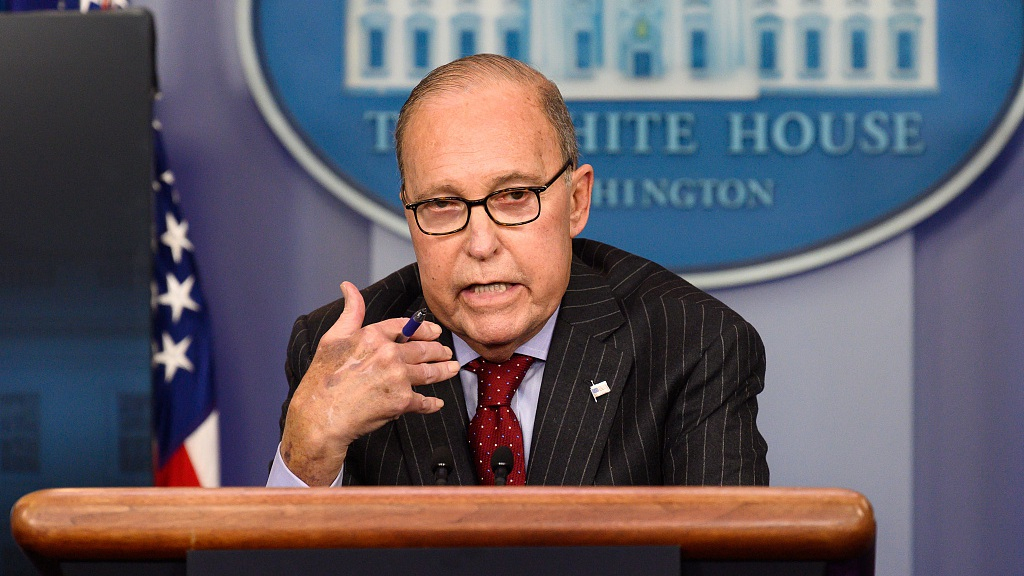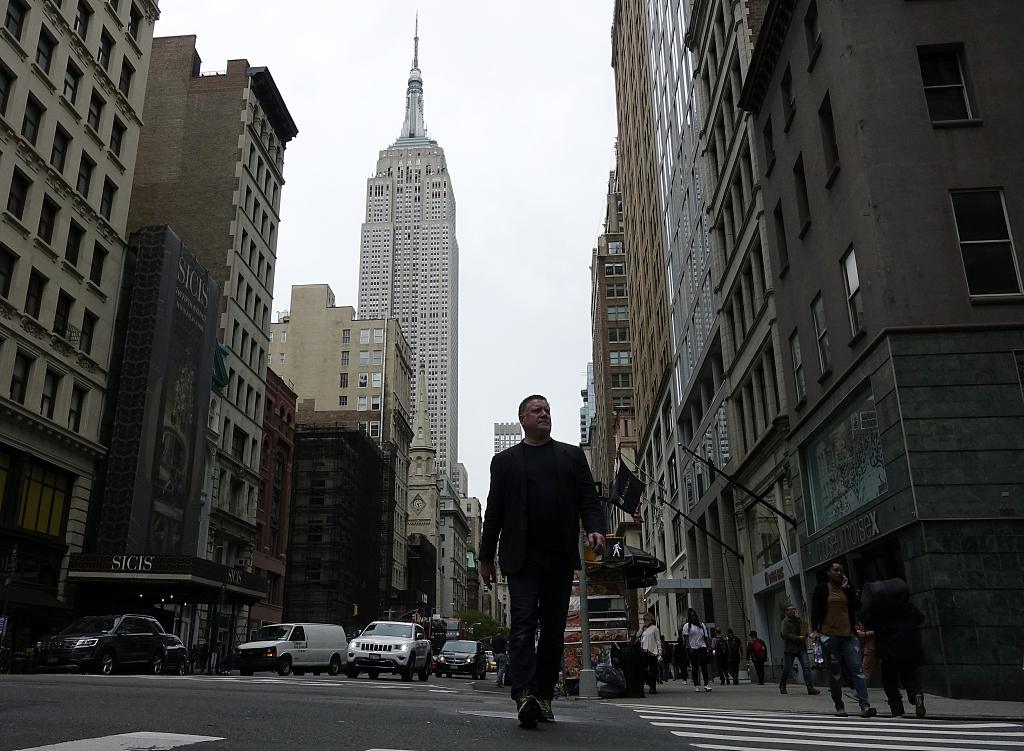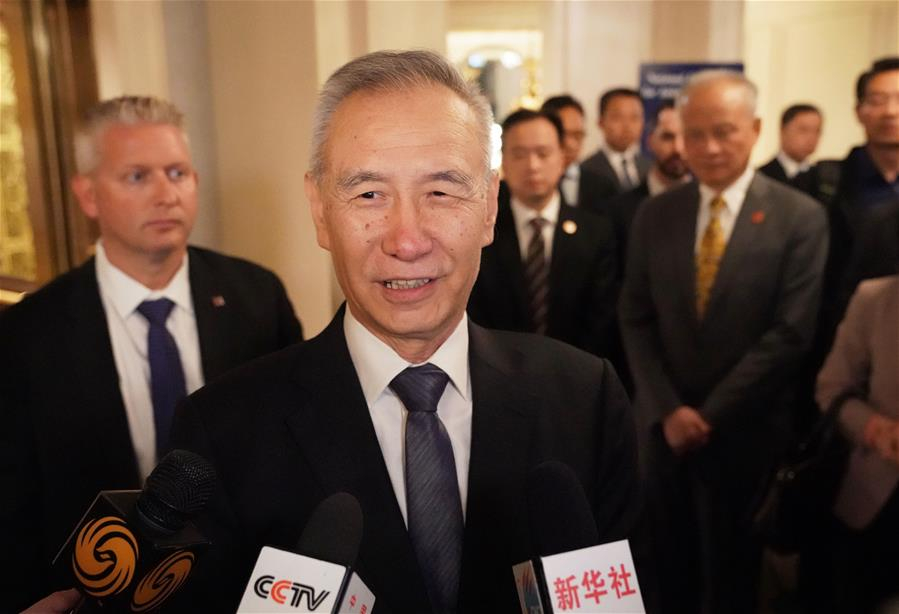
Opinion
14:55, 13-May-2019
As Kudlow admits 'both sides will pay', rational Americans should speak up against trade war
Updated
16:47, 13-May-2019
Tom Fowdy

Editor's note: Tom Fowdy is a British political and international relations analyst and a graduate of Durham and Oxford universities. He writes on topics pertaining to China, the DPRK, the UK and the U.S. The article reflects the author's opinion, and not necessarily the views of CGTN.
On Sunday, the Donald Trump administration's head of the National Economic Council, Larry Kudlow, publicly admitted that the president's escalation of the trade war will impose costs upon Americans. Responding to a comment from a journalist critical of Trump's repeated claim that China is “paying” for the tariffs to the gain of the U.S., Kudlow indirectly acknowledged that the president's comments were misleading and said that “both sides will pay.” When then told that U.S. consumers and businesses would be bearing the brunt of the levies, he further stated, “I don't disagree with that.”
The fact that the president's own economic advisor cannot publicly provide good support for the trade war is hardly a display of confidence in the path Trump has chosen, not least because Kudlow enthusiastically supported the move to get tough with China in the first place. But still one must wonder as a result of this whether Americans are prepared to speak up against the trade war.
Even beyond the White House, the atmosphere in Washington has been filled with a marked sinophobia and an unreserved bid to demonize all things pertaining to China. This has seen Trump's economic warfare receive very little scrutiny, even from progressive politicians. However, with his clear defiance of economic logic, now it should be made abundantly clear the trade war is not in America's national interest. No more excuses.
Trump is legitimating his trade war by an appeal to economic falsehoods. Focused on stroking up the flames of populism and nationalism rather than empirical reality, the president has sought to construct a simple yet convincing narrative that America's trade deficit with China is a product of not only weak leadership from his predecessors, but also that China “cheats and rips people off.”

A man strolls along 5th Avenue in front of the Empire State Building in New York City, May 23, 2017. /VCG Photo
A man strolls along 5th Avenue in front of the Empire State Building in New York City, May 23, 2017. /VCG Photo
In turn, he has claimed that by slapping tariffs on Chinese exports to the U.S. he can support domestic manufacturing and jobs, forcing China to “change their ways.” He has then sought to justify these measures by claiming that Washington is now making “billions” out of China, which he then pledged to invest in infrastructure and agriculture.
Except none of it is true. A year ago Larry Kudlow stood on the White House lawn and hailed the crashing of the Shanghai Composite in the midst of Trump's initial tariffs. Yet, a year later he is humbly forced to confess that the impact of extended tariffs will be ultimately borne by businesses, which will, in turn, increase their prices and hurt consumers. The idea they can save money by producing locally is nonsense.

Chinese Vice Premier Liu He receives an interview in Washington D.C., the U.S., May 9, 2019. /VCG Photo
Chinese Vice Premier Liu He receives an interview in Washington D.C., the U.S., May 9, 2019. /VCG Photo
As one report noted, to manufacture an iPhone completely within the U.S. would cost more than 2,000 U.S. dollars, simply because the labor market and material supply chains are all vastly more expensive. For American companies to establish alternative markets and supply chains to import from is also something that cannot be done overnight, as this would require robust investment in developing the necessary infrastructure.
The result is that Trump's extended trade war will increase inflation and make life difficult for many Americans. But who is prepared to speak up for it? Trump's assertive stance on China has broad bipartisan support with even progressive Democrats such as Bernie Sanders advocating hawkish positions on Beijing. This has allowed the president to effectively wage trade warfare and receive very little public scrutiny for it.
However, with the trade conflict having intensified surprisingly, with obvious effects for the U.S. looming elections, soon politicians might not be able to hide from it. Most markets and observers expected a sharp and quick trade war with a beneficial deal at the end. What they did not anticipate was a prolonged and escalating trade struggle that will eventually take its toll on the U.S.
So what now? Rational Americans must be prepared to speak up against the trade war. Rather than buying into Trump's snake oil populism claiming China is ripping off the U.S., there must be an appeal to the facts that the U.S. benefits from having robust economic ties with Beijing. For too long the White House has been allowed to peddle mistruths to ferment its political agenda in a wide range of fields.
On the matter of China far too many have been sympathetic to challenge him outright, but now with economic damage looming on the horizon, it is time to re-evaluate what has been actually happening. America will not benefit from the trade war. Instead, Trump's erratic decisions pose tremendous risks not only for the domestic economy, but the global one. There will be no financial bonus for domestic jobs, for farmers or for that matter, anyone.
(Cover: Larry Kudlow, head of the National Economic Council. /VCG Photo)
(If you want to contribute and have specific expertise, please contact us at opinions@cgtn.com)

SITEMAP
Copyright © 2018 CGTN. Beijing ICP prepared NO.16065310-3
Copyright © 2018 CGTN. Beijing ICP prepared NO.16065310-3